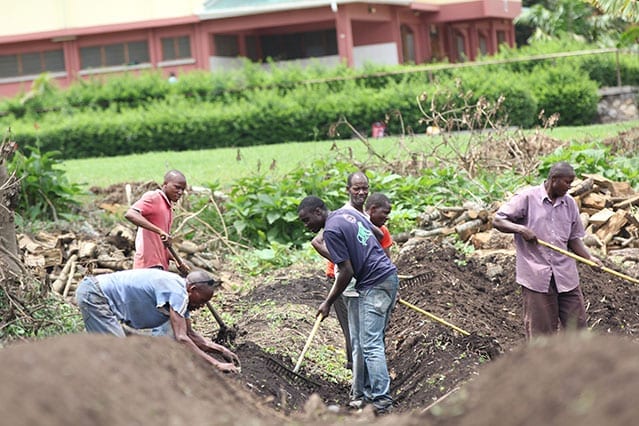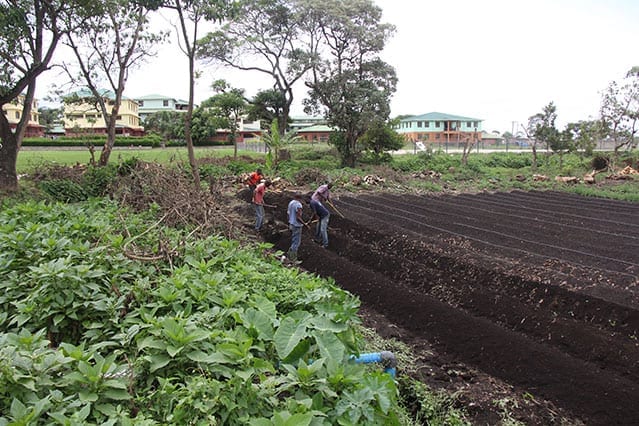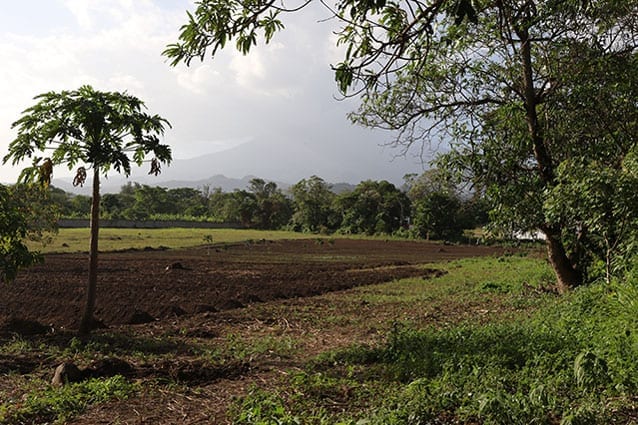From our student body to our campus grounds, progress is flourishing at St Jude’s.
Seven acres of our beautiful Usa River campus is currently becoming more fruitful thanks to our farm project.
“We started this project to produce quality fruit and vegetables for all students,” farm manager Stephen Uswege, who has been helming the operation since its inception about five months ago, said.
“The goal is to produce enough vegetables for all three St Jude’s campuses.”
With an irrigated area for vegetables, designated room for rows of fruit trees, two greenhouses (one for seedlings, the other for tomato and capsicum), plenty of fertile soil and a sunny sky, the project is set for success.

Secondary students, who will become more involved when it comes time to harvest, have enjoyed valuable lessons about agriculture via the farm (or ‘shamba’ in Swahili).
“I have learned many things from this farm project so far, with one of those being the importance of the greenhouse,” secondary student Cuthbert said.
“The greenhouse (environment) helps nourish the plants and gives the seedlings a green, healthy colour. It helps control the pests that would (otherwise) destroy the plant and take the nutrients, leaving not very good food for us to eat.”
Agriculture is Tanzania’s primary industry, as well as being a ‘National Priority’ degree as determined by the Tanzanian Government. It contributes almost 30% of the country’s GDP, and in 2014 employed 67% of the population*.

Mr Uswege has a background with similar farms and expects our yield to include sukuma wiki (a collared green), cabbage, carrot, onion, chili, watermelon, avocado, mango, cucumber, capsicum, guava, banana, passionfruit and papaya.
The vegetable garden’s drip irrigation includes polythene tunnels to protect soft vegetables, and fertilizer to balance minerals in the soil.
“The drip irrigation will help the plants get water throughout the year,” Smith student Beatrice said.
“It should not be difficult for us to wait until the rains so we can cultivate more crops as we need.”
The finished product of this tremendous, tasty project will soon fill the bellies of students like Beautrice and Cuthbert!

Help us accomplish big, exciting projects like the shamba by donating to our Area of Greatest Need.
* www.tanzaniainvest.com/agriculture